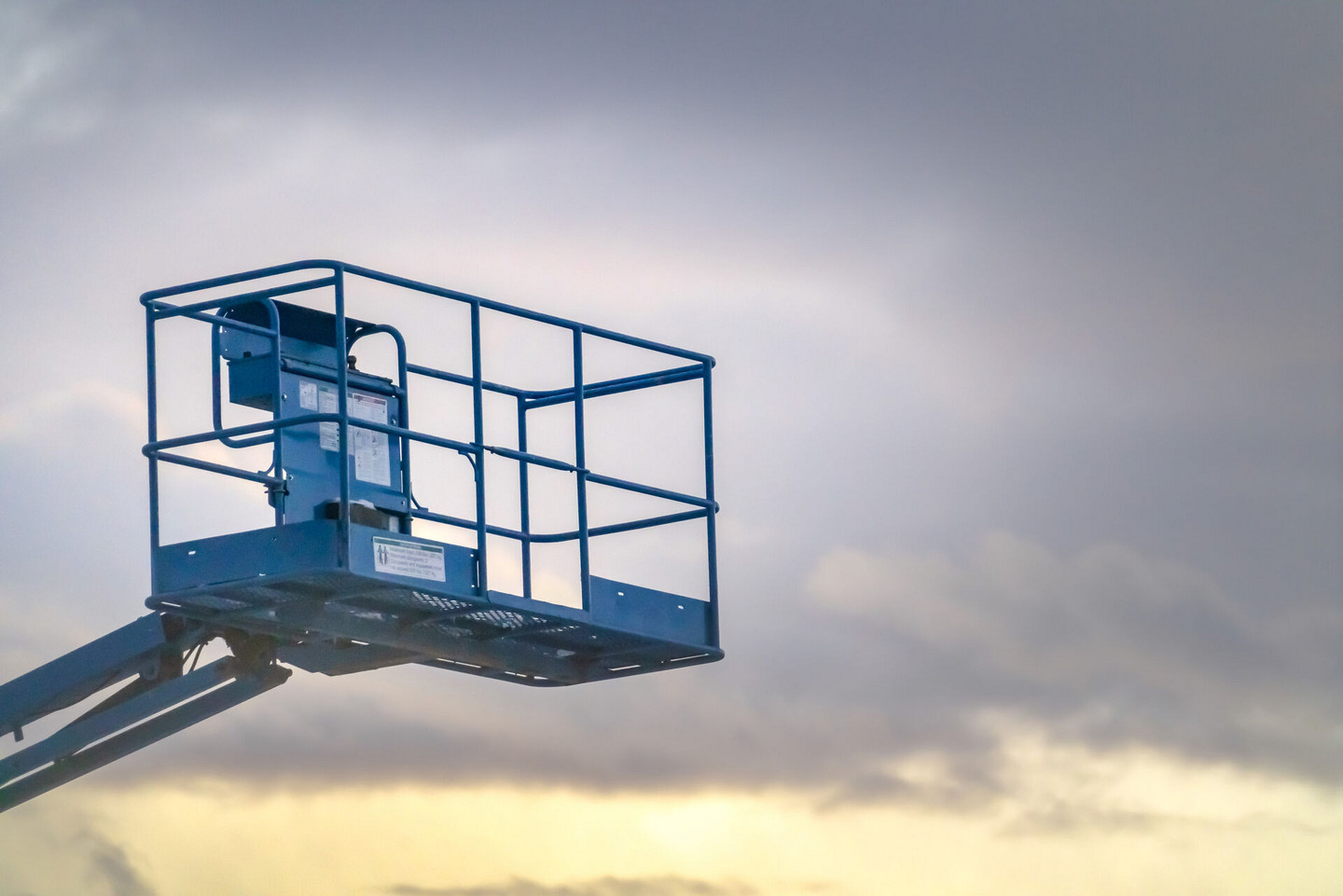
Rental Equipment Sales Tax: What You Should Know
Sycor.Rental for the challenges rental businesses experience.
Dealing with sales tax on rental equipment can feel like trying to hit a moving target. Unlike traditional retail, equipment rental companies must navigate complex tax rules that vary by state, county, or even city.
Add in factors like equipment type, rental duration, and assets crossing state lines, and the complexity multiplies, making it easy to miss something that could cost you later.
Unfortunately, tax calculation or reporting mistakes can trigger audits and unexpected costs that cut into profits. Read on for all the fundamentals you need to know about sales tax on rental equipment and discover a smarter way to manage compliance. *

*The Article Continues Below
If these challenges sound familiar, connect with Sycor Americas at +1 877 487 9267.
We help rental companies streamline tax processes with equipment rental software built on Microsoft Dynamics 365.
Arrange a free, no-obligation consultation with one of our experts at your convenience, by submitting the form to the right -------------------------------------------->
* How Equipment Rentals Are Taxed vs. Retail Sales
One of the most common questions we hear is, “Is equipment rental taxable?”
In most cases, yes, it is. Unlike a retail purchase, where sales tax is charged once at the point of sale, rentals are often taxed repeatedly.
Consider the example of a construction firm renting an excavator for a three-month job. Instead of a one-time tax at purchase, they’ll likely see sales tax on every monthly invoice. Depending on the state, additional charges like delivery, maintenance, or damage waivers may also be taxed.
If you’re not tracking carefully, it’s easy to overcharge, under collect, or miss something that will become a problem later.
Sales Tax vs. Use Tax: Key Differences
Is there sales tax on rental equipment? Most states do impose sales tax on rental transactions, viewing the rental fee as a taxable service rather than a one-time sale. However, it gets more complicated when the equipment crosses state lines.
Maybe you’re moving a crane between job sites across two neighboring states. Each one might have different rules, rates, or thresholds, so you will have to account for all of them.
Sales tax is generally collected at the time of the transaction and remitted to the appropriate state or local authority. Because rental fees are treated as a taxable “sale of service,” each billing cycle (monthly, weekly, or daily) may include a sales tax charge.
Use tax enters the picture when equipment crosses state lines, common in dealerships and distributors, energy, or medical equipment sectors. If sales tax was not collected in the state where the rental originated, the state where the equipment is used often requires a use tax instead.
Category | Sales Tax | Use Tax |
Tax Type | Charged at the point of sale or rental | Self-assessed when no sales tax is collected |
When Applied | At the time of the rental transaction | Upon use of equipment in another jurisdiction |
Purpose | Revenue collection at the source of the transaction | Ensures tax is paid when sales tax isn’t collected |
Typical Rates | Varies by state, usually 4-10% | Matches the state’s sales tax rate |
Case in point: a mobile crane rented in Texas but used on a project in Oklahoma might trigger use tax in Oklahoma. Similarly, medical devices or agricultural equipment rented in states with exemptions could face different obligations when transported to states without such exemptions.
State-by-State Variations and Multi-State Compliance Challenges
Sales tax on rentals is not uniform across states:
In California, equipment rentals are generally taxed at a 7.25% base sales tax rate, with some localities adding district surcharges.
In Washington, rentals may incur a Business & Occupation (B&O) tax of 1.5-1.75% and a 1.25% heavy equipment rental tax in addition to standard sales tax.
Texas applies a Motor Vehicle Rental Tax (10% for rentals 30 days or under and 6.25% for up to 180 days) rather than general sales tax on qualifying vehicles.
Florida imposes a 6% state rate plus any applicable county-level surtaxes.
Illinois layers local taxes on top of its 6.25% state rate.
Colorado takes a different approach by treating rental companies as the end-users of equipment, exempting short-term rentals (under three years) from sales tax. If you run multi-state operations, these variations can create confusing tax treatments.
Taxability also hinges on contract length. Many states consider long-term rentals (typically over three years) to be sales transactions, which triggers an entirely different set of tax rules. Add-on fees, such as delivery or damage waivers, can also be taxable in one state and exempt in another, adding to the complexity.
Accurate location-based tax determination becomes necessary with these varying state and local rules. Manually managing these differences is both time-consuming and risky. Errors multiply when rate changes, exemptions, and invoice structures aren’t tracked in real time.
Automated systems that track the location, duration, and type of equipment make handling multi-state taxes more seamless.
Risks of Non-Compliance
With the laws differing in every state, mistakes can easily arise for rental companies across various industries. A missed use tax obligation or a misapplied rate might initially seem minor, but those oversights can snowball into back taxes and steep penalties in an audit.
However, it’s not just about dollars and cents. Billing discrepancies can frustrate customers and add unnecessary work for your team. Reconciling tax errors after the fact is tedious, and if it happens more than once, your reputation may take a hit.
Tips for Managing Sales and Use Tax in a Growing Rental Business
For rental companies scaling across regions or juggling high volumes of contracts, the rules rarely stay still. But with the right systems and habits in place, tax compliance doesn’t have to slow down your operations.
Centralize Tax Data
Scattered tax details lead to mistakes. Consolidate everything: rates, exemption certificates, and transaction history, into a single system. This creates clarity across teams and makes audits far less painful.
Automate Tax Calculations
Manual calculations leave too much room for error. Tax automation tools can instantly apply the correct rates based on the specifics of the transaction, saving time and preventing miscalculations.
Stay Current on Tax Rule Updates
State and local rules change more often than most businesses realize. Use tools that automatically update rates behind the scenes or assign a recurring task to keep your team on top of changes.
Create Audit-Ready Records
Every charge, waiver, and exemption should be easy to trace. Detailed, organized records mean faster reconciliations and fewer surprises when regulators come calling.
Integrate Finance and Operations
When billing, contracts, and financial reporting live in separate systems, tax inconsistencies are inevitable. An integrated ERP connects the dots and ensures taxes are applied consistently across every function.
How ERP Solutions Streamline Tax Compliance
Staying on top of sales and use taxes can take valuable time. And the more your operations grow, the harder it becomes to keep rules and rates aligned.
Microsoft Dynamics 365 ERP addresses this challenge by providing a single platform that unifies financials, operations, and rental contracts. With tax rules embedded into day-to-day workflows, Dynamics 365 eliminates silos and delivers real-time visibility into tax obligations at every stage of the rental process.
Sycor.Rental builds on the foundation of Dynamics 365 to deliver rental-specific functionality, including advanced tax management. It automatically applies the correct sales or use tax based on your transaction, so your team doesn’t have to track ever-changing rules manually.
Key benefits include:
Automatic tax calculation for varying rental terms, locations, and equipment categories.
Centralized reporting with real-time visibility for finance teams.
Comprehensive audit trails and transaction histories that simplify compliance and audits.
Why Partner with Sycor Americas
With more than 20 years of experience, Sycor Americas understands the unique tax workflows of the equipment rental industry. We deliver U.S.-based support and expertise tailored to the demands of sectors like construction, energy, and healthcare.
Our solutions built on Dynamics 365 ERP are designed to scale with your business, integrating seamlessly with your existing processes while reducing the risk of manual errors. Our team also provides Microsoft 365 subscription and license consultations to ensure seamless integration of these solutions into your rental operations.
By partnering with Sycor Americas, you gain better financial visibility and a foundation for growth supported by automated tax and compliance features.
Let’s Transform How You Handle Rental Tax Complexities
Managing sales tax on rental equipment is a challenge that can drain time and resources if handled manually. Sycor.Rental, built on Microsoft Dynamics 365, takes this burden off your team. It automates tax calculations, tracks multi-state compliance, and generates audit-ready reports — all while integrating seamlessly with your rental operations.
Don’t let tax complexity slow down your business. With Sycor Americas, you’re working with a partner that understands your industry and brings over two decades of hands-on ERP experience.
Your Sycor.Rental Specialist
Simplify your rental tax management today.
Contact Sycor Americas or call +1 877 487 9267 to learn how Sycor Rental can help you get started.

Our partners
All partners



